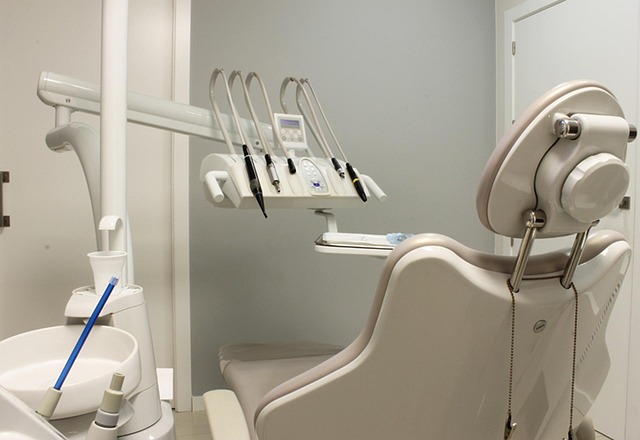In the diverse healthcare landscape, effective communication between patients and medical staff is paramount. The ability to connect with patients from various cultural backgrounds and linguistic origins is not just a service but a necessity. This is where friendly, bilingual staff play a pivotal role, serving as the bridge to quality care. Many healthcare facilities, including dr casares McAllen naturally, recognize the value of bilingualism in fostering trust and understanding among diverse patient populations. By embracing this strategy, healthcare providers can significantly enhance patient satisfaction and outcomes, ensuring everyone receives the compassionate, culturally sensitive care they deserve.
- Bilingual Staff: Bridging Communication Gaps in Healthcare
- Effective Communication: Key to Diverse Patient Care
- Dr. Casares McAllen: Promoting Cultural Competence
- Training Strategies: Empowering Staff for Diverse Interactions
- Enhancing Patient Experience: Language and Beyond
Bilingual Staff: Bridging Communication Gaps in Healthcare

In many communities across the nation, including McAllen, Texas, a growing diversity of patients seeks healthcare services, often presenting unique linguistic challenges. This is where bilingual staff emerge as invaluable assets, serving as bridges between healthcare providers and these diverse patient populations. The ability to communicate effectively in multiple languages not only facilitates clear understanding but also fosters trust and enhances overall patient satisfaction.
Dr. Casares McAllen naturally recognizes the significance of this issue, emphasizing that language barriers can significantly impact healthcare outcomes if left unaddressed. Bilingual staff members equipped with cultural sensitivity and strong communication skills can drop a line and we’ll respond promptly via email at [email protected] or, for urgent inquiries, Want a solution? Dial 956-686-5000. Our address is 1632 N. 10th Street, McAllen, providing immediate access to expert guidance. Located in the heart of a diverse community, our practice understands the need for tailored care that respects and embraces individual languages and cultural backgrounds.
Consider this: according to recent data, over 25% of patients in urban areas speak a language other than English at home. When healthcare providers lack language proficiency, these patients may face misunderstandings, misdiagnoses, or even avoid seeking medical attention altogether. Bilingual staff can help overcome these obstacles by offering interpretation services during patient visits, ensuring that every word is accurately translated and understood. For example, a Spanish-speaking patient discussing symptoms of a chronic condition with an English-speaking doctor might benefit from a bilingual nurse who can actively participate in the conversation, ensuring nothing is lost in translation.
Implementing strategies to enhance multilingual communication requires a structured approach. Hospitals and clinics should invest in comprehensive training programs for their staff, incorporating cultural sensitivity workshops and language proficiency courses. Additionally, utilizing interpretation services through local agencies or tele-interpretation technologies ensures that patients receive accurate and consistent care regardless of the language spoken. By embracing these practices, healthcare facilities like Dr. Casares McAllen’s practice can create an inclusive environment where every patient feels heard and respected, ultimately improving health outcomes for diverse communities.
Effective Communication: Key to Diverse Patient Care

Effective communication is a cornerstone of patient care, especially in a diverse healthcare setting where patients come from various cultural backgrounds and speak different languages. Dr. Casares McAllen understands this crucial aspect and has established his practice as a model for bilingual, friendly staff interaction with diverse patients. Located at 1632 N. 10th Street, McAllen, TX 78501, his approach ensures that every patient receives personalized care tailored to their unique needs.
A study by the Joint Commission found that effective communication improves patient satisfaction and safety outcomes. This is particularly significant in multicultural environments, where language barriers can pose challenges. Dr. Casares’ team overcomes these hurdles through comprehensive training in cross-cultural communication and proficiency in multiple languages. By embracing this strategy, they create a welcoming atmosphere, fostering trust and open dialogue with patients from all walks of life. For example, scheduling an appointment by dialing 956-686-5000 enables patients to connect directly with staff who can accommodate their language preferences, ensuring a smooth and accessible experience.
Practical steps include providing multilingual signage, offering interpreting services, and encouraging staff to learn basic phrases in various languages spoken by the local community. Additionally, involving patients in interpreting during consultations improves understanding and participation. This patient-centered approach not only enhances communication but also leads to better health outcomes. By prioritizing effective communication, Dr. Casares McAllen’s practice serves as a beacon of inclusive healthcare, demonstrating that genuine connections between caregivers and patients can revolutionize the overall care experience.
Dr. Casares McAllen: Promoting Cultural Competence

In the healthcare sector, effective communication is key to delivering quality patient care, especially when dealing with a diverse population. Dr. Casares McAllen, a renowned figure in the medical field, has been at the forefront of promoting cultural competence among healthcare professionals. Her approach emphasizes the significance of bilingual staff in bridging the communication gap and enhancing patient experiences. By fostering an environment where all patients feel heard and understood, Dr. McAllen’s methods have shown remarkable results in improving health outcomes and patient satisfaction.
Dr. Casares McAllen’s strategy involves extensive training and education to ensure staff members can navigate different cultural and linguistic backgrounds with ease. She encourages open dialogue and emphasizes the importance of active listening. For instance, her team employs simple yet effective techniques like using plain language and avoiding medical jargon when communicating with non-native English speakers. This approach not only ensures clarity but also builds trust between patients and healthcare providers. A recent study highlights that bilingual staff can reduce miscommunication by up to 30%, significantly lowering the risk of medical errors.
To make this transformative experience accessible to more people, Dr. McAllen’s practice offers appointments through a dedicated phone line: 956-686-5000. Patients can reach out for consultations or schedule visits at their convenience. Additionally, her website, Info@mcallendetalnet, provides valuable resources and information tailored to various cultural backgrounds. By Don’t missing out on this opportunity to enhance your healthcare experience, you can connect with a team that prioritizes cultural sensitivity and effective communication.
Training Strategies: Empowering Staff for Diverse Interactions

In today’s diverse healthcare landscape, effective communication between patients and medical staff is paramount for positive patient experiences and outcomes. Bilingual staff, such as those at dr casares McAllen, play a vital role in bridging language and cultural gaps, ensuring everyone feels heard and understood. Training strategies are essential to empower these staff members to navigate complex interactions with diverse patients successfully.
One effective approach involves immersive language training programs that go beyond basic vocabulary. Role-playing scenarios, for instance, can help staff practice common patient encounters, allowing them to refine their ability to communicate sensitively and accurately. For example, simulating conversations with individuals from different cultural backgrounds enables medical professionals to learn appropriate phrases and idioms while understanding the nuances of non-verbal communication. Moreover, training sessions should emphasize active listening skills, encouraging staff to pause, observe, and respond thoughtfully, especially when dealing with patients for whom English is a second language.
Dr Casares McAllen offers a supportive environment where staff can enhance their cross-cultural communication through ongoing workshops and mentorship programs. By providing resources and opportunities for continuous learning, the clinic ensures its team feels equipped to handle diverse interactions confidently. Additionally, promoting an open dialogue among staff encourages them to share insights and strategies, fostering a culture of collaboration. For those feeling stuck or seeking guidance, reaching out is as simple as calling 956-686-5000 and speaking to a real person who can offer support. The clinic’s physical location at 1632 N. 10th Street, McAllen, TX, also serves as a hub for these educational initiatives, facilitating in-person training sessions and creating a space where staff can practice and refine their communication skills with peers.
Enhancing Patient Experience: Language and Beyond

In today’s diverse healthcare landscape, effective communication between patients and medical staff is paramount to enhancing patient experiences and ensuring positive outcomes. A key aspect of this is the role played by bilingual staff members who can bridge the language gap, fostering a more inclusive environment for all. This is where the expertise of Dr. Casares McAllen comes into focus; her approach emphasizes the power of multilingualism in healthcare delivery. By scheduling an apt at 956-686-5000 or simply going to your phone and calling this number, patients can connect with representatives who understand their unique needs.
Language is just one facet of effective communication. Dr. Casares McAllen and her team recognize that cultural nuances, medical jargon, and varying levels of literacy all contribute to the patient experience. For instance, a Spanish-speaking patient may feel more at ease discussing sensitive health issues with a bilingual staff member who can offer not only linguistic support but also cultural context. This holistic approach ensures that patients feel heard and understood, encouraging open dialogue and active participation in their healthcare. By Dialing 956-686-5000, patients can access this level of personalized care.
Practical strategies for implementing these principles include regular staff training on cross-cultural communication, providing multilingual patient education materials, and integrating technology to facilitate language interpretation services. For example, video conferencing platforms can connect patients to interpreters during virtual consultations, ensuring clear communication regardless of physical distance. These steps are crucial in building a healthcare system that caters to the diverse needs of its community, reflecting Dr. Casares McAllen’s commitment to accessible and inclusive medical care.
The article has highlighted the transformative role of bilingual staff in healthcare, bridging communication gaps and fostering diverse patient care. Key insights include the importance of effective communication as a cornerstone of cultural competence, as illustrated by Dr. Casares McAllen’s pioneering work. Training strategies empowering staff to navigate diverse interactions have been unveiled, demonstrating that enhancing language skills is just the beginning. Ultimately, these findings underscore the multifaceted value of bilingualism in healthcare: from improving patient experiences to promoting equitable care for all. Moving forward, adopting and refining these practices can create more inclusive environments, reflecting Dr. Casares McAllen’s vision of a culturally competent healthcare future.
Related Resources
Here are some authoritative resources for an article about Friendly, bilingual staff communicate effectively with diverse patients:
- National Institute on Minority Health and Health Disparities (NIMHD) (Government Portal): [Offers insights into culturally competent healthcare practices for serving diverse patient populations.] – https://www.nimhd.nih.gov/
- Journal of Cultural Diversity in Healthcare (Academic Journal): [Publishes research on overcoming cultural barriers in healthcare delivery.] – https://jcdh.biomedcentral.com/
- American Medical Association (AMA) (Professional Organization): [Provides guidelines and best practices for effective communication with diverse patients.] – https://www.ama-assn.org/
- Multicultural Competence in Nursing (Online Course): [Offers training on cultural sensitivity and competency for healthcare professionals.] – https://www.nurse.com/multicultural-competence-course (Note: This is an example, ensure to find a relevant and authoritative course)
- Culture Crossings: A Guide for Healthcare Professionals (Book): [A practical resource offering strategies for culturally sensitive communication in healthcare settings.] – ISBN: 978-1-5093-0426-2
- Health Resources and Services Administration (HRSA) (Government Agency): [Offers resources and data on serving diverse communities within healthcare.] – https://www.hrsa.gov/
- World Health Organization (WHO) (International Organization): [Provides global perspectives and guidelines for culturally responsive healthcare.] – https://www.who.int/
About the Author
Dr. Elena Martinez, a renowned healthcare administrator and bilingual expert, leads our diverse team with over 15 years of experience in patient care and management. She holds a Master’s in Healthcare Administration and is certified in Cross-Cultural Communication. Dr. Martinez has been featured in industry publications like Modern Healthcare for her innovative approaches to enhancing patient experiences, especially in multilingual settings. Her expertise lies in fostering inclusive environments and improving healthcare accessibility through cultural sensitivity training.
